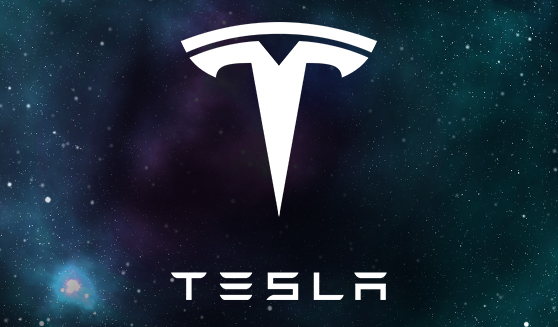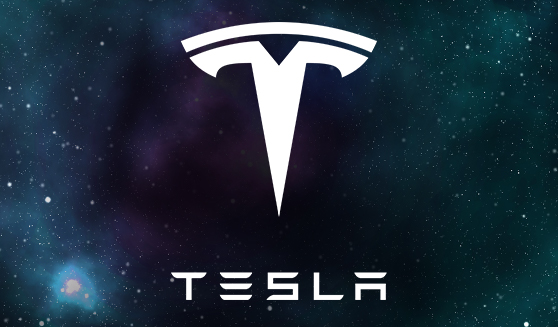
Tech careers with impact: The power of investing
If you’ve ever thought about becoming a tech investor, read this – learn why investors are the quiet force shaping the future of the industry.


Elon Musk rewrote the rulebook on industry disruption with Tesla Inc. But as EVs go mainstream, can the company maintain its lead?

Tesla Inc.’s meteoric rise from a startup taking on the world’s most powerful automotive carmakers to racing past them to a US$1 trillion valuation is already an inspiration for millions of budding entrepreneurs.
What its mercurial founder Elon Musk has done over the past decade has disrupted an entire industry and created a sustainable new model that not only fights climate change but also helps governments and businesses reach their ambitious net-zero emissions targets.
Tesla produced just over 237,800 cars in the third quarter of 2021.
“EV demand continues to go through a structural shift,” the company said in its third-quarter earnings. “We believe the more vehicles we have on the road, the more Tesla owners are able to spread the word about the benefits of EVs. While Fremont factory produced more cars in the last 12 months than in any other year, we believe there is room for continued improvement. Additionally, we continue to ramp Gigafactory Shanghai and build new capacity in Texas and Berlin.”
Tesla already dominates the EV industry. According to Uswitch.com, Tesla is the top EV maker globally, with its Model 3 seen as the best-seller and its midsize sedan emerging as a top seller, too, according to a new study.
“Uswitch analyzed data from 61 countries, with Tesla taking the lead as the top manufacturer in a total of 24 countries. Nissan and Volkswagen snagged the second- and third-place positions, dominating the market in 10 and seven countries, respectively,” according to Uswitch. “The brands’ top electric models are the Nissan Leaf and VW ID.4. Volkswagen has also added two new vehicles to the global EV top five list in 2021 alone, the ID.3 and ID.4.”
Why is Tesla so successful at EV sales compared to its more established counterparts? One analyst believes that it’s because Musk thinks of cars not in terms of assembly-line products but as software.
“Tesla builds cars by developing software on unique hardware, much in the way Apple develops the iPhone or Microsoft leverages Intel chips and Dell PCs,” according to Lou Shipley, writing for the Harvard Business Review. “This enables the company to improve its cars’ software functionality every few weeks. This is in sharp contrast to the traditional auto industry model where the product is the same for as long as you drive it.
Another major reason is the innovation in its battery technology that reduces total cost of ownership.
“By some estimates they have significantly fewer parts per vehicle — around 20 — versus the 2,000 in internal combustion engines. This simplicity dramatically reduces the consumers total cost of ownership,” Shipley wrote.
Tesla has also recently bought battery makers and aims to incorporate more efficient battery-related technologies into its vehicles. While other automakers are also rushing to acquire the right electric battery expertise, they will still be playing catch up as this market grows.
RIVALS ON ITS HEELS
Tesla may be ahead of the pack, but its competitors are revving up. Traditional carmakers such as General Motors Corp., Ford Motors Corp., The Daimler Group, BMW AG, Volvo Cars (owned by Zhejiang Geely Holding), Volkswagen AG and Japanese giants Toyota Motor Corp., Honda Motor Company, Ltd. and Nissan Motor Corp. are eyeing the booming market.
Many of these companies Volvo will only sell electric cars from 2030; Ford will only electric car sales in Europe from 2030; General Motors plans to offer only electric light-duty vehicles by 2035; Volkswagen aims for 70% electric car sales in Europe, and 50% in China and the United States by 2030; and Stellantis aims for 70% electric cars sales in Europe and 35% in the United States.
In addition, Chinese car makers SAIC Motor, Dongfeng, FAW and Chang’an are also well-established in their home markets and making a play for global dominance.
A new set of carmakers such as Saudi Arabia-backed Lucid Motors Inc., Rivian Automotive Inc., Fisker Inc., among others, are also nimble players entering the market.
Currently more than 10 million cars are on the roads globally and that number is expected to rise to 55 million to 72 million by 2025, according to the International Energy Agency.
Given that the transportation sector makes up 24% of all emission globally, EVs can play a huge role in shrinking the world’s carbon footprint.
Since 2015, the global share of new passenger EVs has increased at an average of around 50% per year, a stupendous amount of growth. If growth this rapid continues, EVs would make up 50% of all light-duty vehicles sales by 2026 and 100% by 2028, according to the World Resources Institute.
“As EV prices continue to fall and more models become available, it is possible we are nearing a critical tipping point with EVs poised for exponential growth in an increasing number of countries over the next decade under the right conditions,” WRI noted.
With so many companies vying to get a piece of the EV market share, will Tesla be able to maintain its pole position? ©

If you’ve ever thought about becoming a tech investor, read this – learn why investors are the quiet force shaping the future of the industry.

Tech generalists will enable emerging technologies to integrate across industries and societies in meaningful ways. We still need specialists – but we also need big-picture people.

Discover three tech sectors facing a talent shortage this year. Could you find your ideal role in a high-demand sector like cybersecurity, cloud computing, or artificial intelligence?

If you’ve ever thought about becoming a tech investor, read this – learn why investors are the quiet force shaping the future of the industry.

Tech generalists will enable emerging technologies to integrate across industries and societies in meaningful ways. We still need specialists – but we also need big-picture people.

Discover three tech sectors facing a talent shortage this year. Could you find your ideal role in a high-demand sector like cybersecurity, cloud computing, or artificial intelligence?